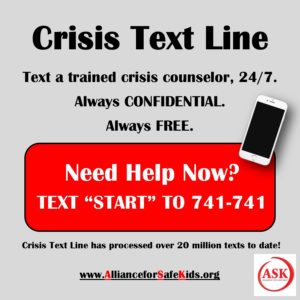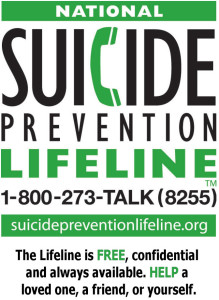 Teens face a wide variety of issues today, from pressures at school to bullying to maintaining relationships. The high school years can be especially challenging, because young people are trying to figure out their direction after graduation as well as keep up with their day-to- day routines. The pressure to do well academically, to be cool, to try drugs and alcohol…those are all things most teens have to deal with at some point in their school career. There isn’t much an outsider can do about it, but parents can watch for warning signs of depression and other mood disorders, which can lead to teen suicide.
Teens face a wide variety of issues today, from pressures at school to bullying to maintaining relationships. The high school years can be especially challenging, because young people are trying to figure out their direction after graduation as well as keep up with their day-to- day routines. The pressure to do well academically, to be cool, to try drugs and alcohol…those are all things most teens have to deal with at some point in their school career. There isn’t much an outsider can do about it, but parents can watch for warning signs of depression and other mood disorders, which can lead to teen suicide.
Depending on the age group, suicide is the second or third leading cause of death for young people. According to the Center for Disease Control, males are much more at risk in the U.S., making up nearly four times the amount of suicides as females. It’s important, then, to know which warning signs to watch for and how to handle them when they’re spotted.
The signs
Some of the most important signs that a young person is thinking about suicide include talking or writing about their own death, expressing feelings of hopelessness or talking about giving up, a sudden loss of interest in things they once loved, a sharp decline in their appearance or health, changes in their sleeping and eating habits, suddenly getting into trouble at school or with law enforcement, and exhibiting sudden personality changes. Many teens experience changes in mood and behavior simply due to hormonal changes, so keep in mind that not every mood swing is a cry for help. It’s important to keep communication open with your teen so that they’ll feel comfortable coming to you if they do start having feelings of self-harm, and also so that you’ll be more informed about what’s going on in their lives and who they are spending time with.
What causes suicidal thoughts?
There are many things that can contribute to a person’s suicidal thoughts, but there are some that are specific to young people. These can include:
● Being bullied
● Struggling with their sexuality
● Enduring an abusive relationship
● Losing a longtime friend
● Experiencing the death of a loved one
● Experimenting with drugs or alcohol
● Fear of not doing well academically
What you can do
 It’s helpful to keep a close eye on the people your teen spends time with, not just in person but online as well. Social media and apps have made it easier than ever for bullies to do their work, and young people are at risk of meeting someone online who isn’t the person they claim to be. Talk to your child about the dangers of sharing personal information with someone they don’t know online, including photos, names of family members, and your home address.
It’s helpful to keep a close eye on the people your teen spends time with, not just in person but online as well. Social media and apps have made it easier than ever for bullies to do their work, and young people are at risk of meeting someone online who isn’t the person they claim to be. Talk to your child about the dangers of sharing personal information with someone they don’t know online, including photos, names of family members, and your home address.
Often, a teenager who is in an abusive relationship or struggling with their sexuality may feel like they are completely alone. That feeling of isolation can be devastating, so keeping up communication with your child is imperative even when they enter those years where communication seems impossible. Let them know you’re there for them no matter what, and if you suspect they’re dealing with relationship or identity issues, it’s okay to seek help for them.
Parents don’t always have all the answers, but there are counselors and therapists who are trained to help young people get through those difficult times. If you suspect that self-harm is imminent, don’t hesitate to call 911. Never leave the person alone, and, if possible, remove any objects that could be used for harm from the area. Finally, don’t introduce blame into the situation, either for yourself or your child, as that can only do more harm.
Patricia Sarmiento loves swimming and running. She channels her love of fitness and wellness into blogging about health and health-related topics. She played sports in high school and college and continues to make living an active lifestyle a goal for her and her family. She lives with her husband, two children, and their shih tzu in Maryland.
